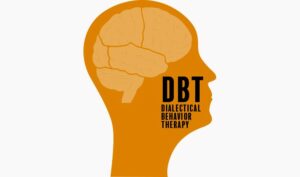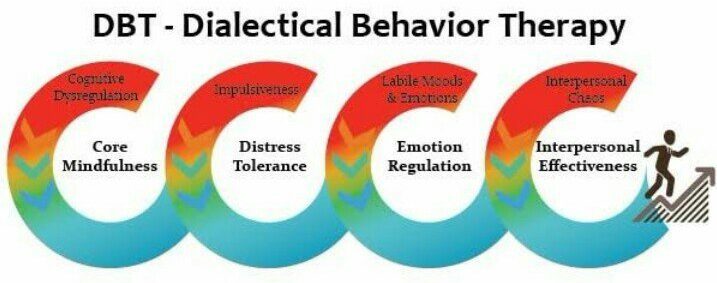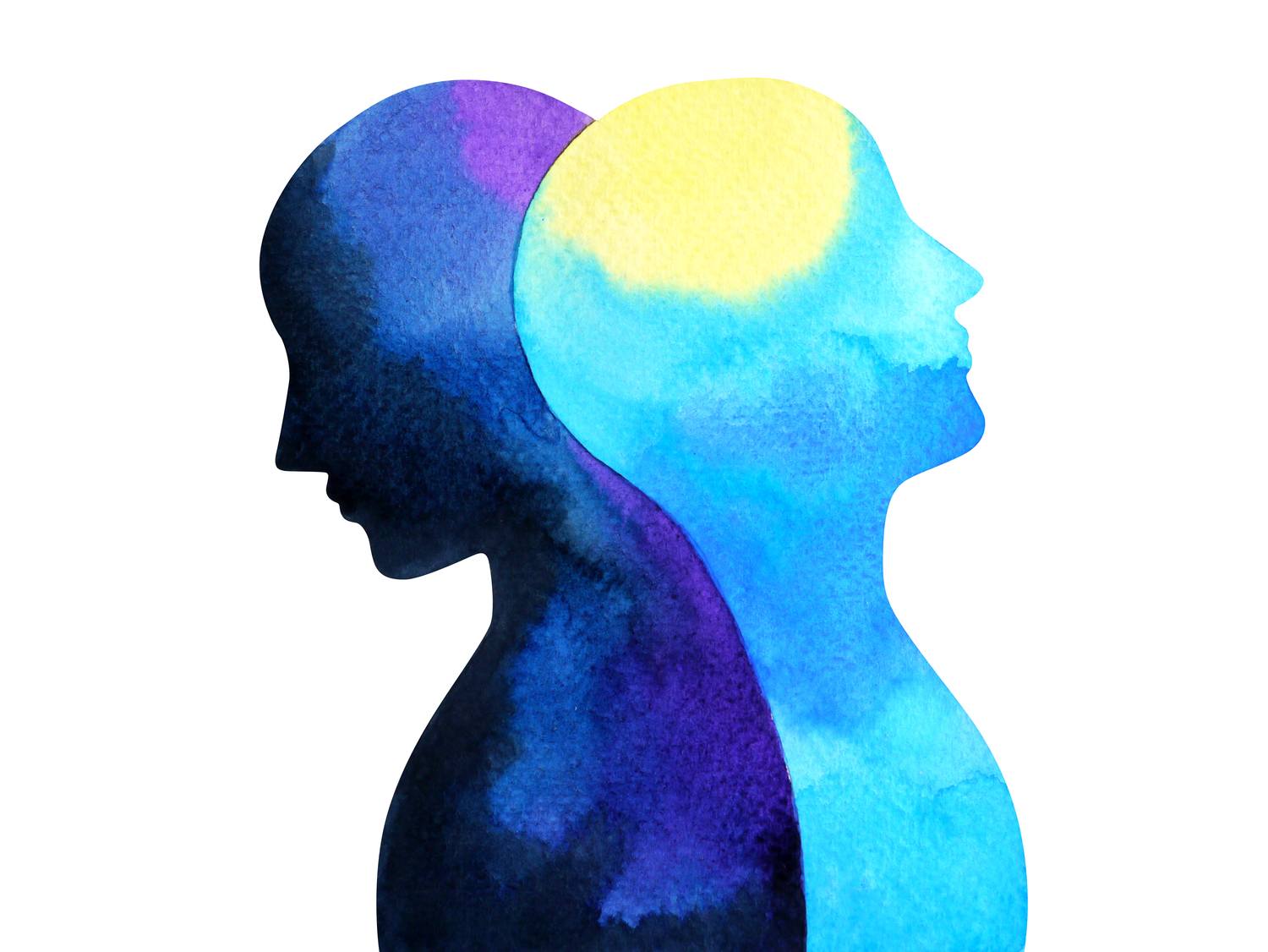If you’re looking for a comprehensive guide to dialectical therapy, look no further! In this blog post, we will discuss what dialectical therapy is, its benefits, and how to get started. We will also answer some common questions about dialectical therapy. If you’re considering this type of therapy, or if you are just curious about it, this post is for you.
Contents
What Is Dialectical Therapy?
 This type of therapy is a type of cognitive-behavioral treatment that was developed in the late 1970s by Marsha Linehan. It is used to treat individuals with borderline personality disorder (BPD) and other mood disorders. The goal of dialectical therapy is to help the individual learn how to manage their emotions, cope with stress, and interact effectively with others.
This type of therapy is a type of cognitive-behavioral treatment that was developed in the late 1970s by Marsha Linehan. It is used to treat individuals with borderline personality disorder (BPD) and other mood disorders. The goal of dialectical therapy is to help the individual learn how to manage their emotions, cope with stress, and interact effectively with others.
The word “dialectical” refers to the idea that there are two sides to every issue. In dialectical therapy, the therapist works with the client. This is to help them understand both sides of an issue and find a resolution that is acceptable to both parties. This process is known as “dialogue.”
This type of therapy is based on the belief that people are capable of change and growth. This type of therapy strives to help the individual see both the positive and negative aspects of their life. This is so they can make changes that will lead to a more fulfilling life.
If you’re considering dialectical therapy, it’s important to find a therapist who is trained in this type of treatment. Dialectical therapy is not appropriate for everyone, and it’s important to find a therapist. It is who can assess whether or not this type of treatment is right for you.
Techniques of Dialectical Therapy

There are many techniques that are used in dialectical therapy.
Socratic Questioning
One of the most common is called “Socratic questioning.” This technique includes asking questions that help to stimulate thought and encourage reflection on one’s beliefs. This technique is also used to help uncover assumptions and challenge beliefs.
Cognitive Reframing
Another common technique is called “cognitive reframing.” This technique is used to help change the way someone thinks about a situation. This can be done by changing the way they label the situation. It is or by looking at the situation from a different perspective.
Behavioral Activation
Behavioral activation is another technique that is used in dialectical therapy. This technique involves helping the client to identify and engage in activities that are enjoyable and meaningful. This can help to increase motivation and improve mood.
Interpersonal Effectiveness Skills
Interpersonal effectiveness skills are also taught in this type of therapy. These skills involve assertiveness, communication, and problem-solving. These skills can help to improve relationships and reduce conflict.
Mindfulness
Mindfulness is another important part of dialectical therapy. This involves learning to be aware of the present moment and accepting it without judgment. Mindfulness can help to reduce stress and improve well-being. It also helps to increase self-awareness and understanding.
Distress Tolerance
Distress tolerance is another technique that is used in dialectical therapy. This involves learning to tolerate distress and discomfort. It also involves learning to cope with difficult situations in a healthy way. It also helps to develop a sense of self-acceptance.
These are just some of the techniques that are used in dialectical therapy. Dialectical therapy is an effective treatment for many mental health conditions. If you think you may benefit from this type of therapy, be sure to talk to your doctor or mental health professional.
What Does Dialectical Therapy Treat?

Dialectical therapy is a comprehensive approach that can be used to treat a wide range of mental health conditions. It is most commonly used to treat:
Depression
Depression is something that is characterized by low mood, poor concentration, and a general feeling of hopelessness. Dialectical therapy can be used to help individuals who are struggling with depression to improve their mood and outlook on life. Depression is also one of the most common mental health conditions that can lead to suicide, so it is important to seek treatment if you are struggling with this condition.
Anxiety
Anxiety disorders are characterized by excessive worry and fear. Dialectical therapy can be used to help individuals who are struggling with anxiety to learn how to manage their symptoms and live a more balanced life. There are also many different types of anxiety disorders, so it is important to seek treatment from a qualified therapist if you are struggling with this condition.
Bipolar Disorder
Bipolar disorder is a mental health condition that is characterized by extreme mood swings. Dialectical therapy can be used to help individuals who are struggling with bipolar disorder to stabilize their moods and live a more balanced life. Bipolar disorder can also be extremely dangerous if left untreated, so it is important to seek treatment from a qualified therapist if you are struggling with this condition.
Borderline Personality Disorder
A borderline personality disorder is a mental health condition that is characterized by instability in relationships, impulsivity, and intense emotions. Dialectical therapy can be used to help individuals who are struggling with a borderline personality disorder to stabilize their emotions and learn how to manage their impulsivity. It may also be necessary to seek treatment from a qualified therapist if you are struggling with this condition.
PTSD
PTSD is a mental health condition that is characterized by flashbacks, nightmares, and extreme anxiety. Dialectical therapy can be used to help individuals who are struggling with PTSD to manage their symptoms and live a more balanced life. PTSD can also be extremely dangerous if left untreated, so it is important to seek treatment from a qualified therapist if you are struggling with this condition.
Mood Disorders
Mood disorders are one of the most common mental health conditions. They are characterized by extreme changes in mood. Dialectical therapy can be used to help individuals who are struggling with a mood disorder to stabilize their emotions and live a more balanced life. Mood disorders can also be extremely dangerous if left untreated, so it is important to seek treatment from a qualified therapist if you are struggling with this condition.
ADHD
ADHD is a mental health condition that is characterized by impulsivity, hyperactivity, and difficulty paying attention. Dialectical therapy can be used to help individuals who are struggling with ADHD to learn how to manage their symptoms and live a more balanced life. There may also be necessary to seek treatment from a qualified therapist if you are struggling with this condition.
Dialectical therapy is an effective treatment for many different mental health conditions. If you are struggling with any of the conditions listed above, it is important to seek treatment from a qualified therapist.
Working of Dialectical Therapy
 The working of dialectical therapy is based on the principle of dialectics, which is a method of reasoning that arrives at the truth by the discussion of conflicting points of view. It is a system in which two opposing sides are presented and then reconciled through debate and dialogue. In dialectical therapy, this process is used to help people resolve their inner conflicts.
The working of dialectical therapy is based on the principle of dialectics, which is a method of reasoning that arrives at the truth by the discussion of conflicting points of view. It is a system in which two opposing sides are presented and then reconciled through debate and dialogue. In dialectical therapy, this process is used to help people resolve their inner conflicts.
Dialectical therapy has its roots in Buddhist philosophy and was developed by German philosopher Georg Wilhelm Friedrich Hegel. It was later adapted for use in psychotherapy by psychologist Carl Rogers. Dialectical therapy is sometimes also referred to as dialogical therapy or dialectical behavioral therapy.
The core principle of dialectical thinking is that everything is interconnected and interdependent. This means that two seemingly contradictory ideas can both be true. For example, you can be both happy and sad at the same time. Dialectical thinking helps us to see the world in a more nuanced way and to hold two contradictory ideas in our minds at the same time.
In dialectical therapy, the therapist takes on the role of a facilitator and guide. The aim is to help the client to become aware of their inner conflict and to find a resolution through discussion and debate. The therapist will encourage the client to explore both sides of their argument and to see the truth that lies between them.
The therapist will also help the client to understand how their beliefs and values are influencing their behavior. Dialectical thinking can be used to challenge rigidly held beliefs and to help the client to become more flexible in their thinking.
Goal of Dialectical Therapy
The goals of dialectical therapy are to help the patient develop a more balanced and accurate view of themselves and the world, learn how to tolerate distress without resorting to unhealthy coping mechanisms, and improve their relationships with others. Dialectical therapy is a form of cognitive-behavioral therapy that was developed in the late 1970s by Marsha Linehan.
Dialectical therapy is based on the belief that humans are inherently contradictory creatures. We have the ability to hold two opposing ideas or feelings in our minds at the same time (hence the name “dialectical”). For example, we can simultaneously love and hate someone, feel both happy and sad about an event, or be both confident and insecure about ourselves. This inner conflict is often what leads to distress and emotional problems.
The goal of dialectical therapy is to help the patient learn how to accept and deal with these inner contradictions, rather than trying to suppress or deny them. This can be a difficult task, as it requires a willingness to experience discomfort and dissonance. However, by learning how to tolerate these inner conflicts, patients can develop greater psychological flexibility and balance. Additionally, they can learn how to better relate to others, as they will no longer be trying to force them into one mold or another.
Benefits of Dialectical Therapy

There are many benefits of dialectical therapy:
Improves Relationships
This type of therapy can help you to improve your relationships. One of the main goals of dialectical therapy is to help you learn how to relate to others in a more positive and productive way. This can help you to have healthier and more satisfying relationships. It also can help you to communicate more effectively and resolve conflicts in a more constructive manner.
Reduces Stress and Anxiety
This type of therapy can also help to reduce stress and anxiety. This is because the focus on learning how to manage emotions and developing a more positive outlook can help to alleviate some of the negative thinking that leads to stress and anxiety. In addition, the skills learned in dialectical therapy can help you to better cope with stressful situations in your life.
Increases Coping Skills
Dialectical therapy also increases coping skills. This is because you learn how to deal with difficult emotions and situations in a more effective way. You also learn how to develop a support system of friends or family members who can offer emotional support when needed. There are also many other coping skills that you can learn through dialectical therapy, such as relaxation techniques and problem-solving skills.
Fosters Intimacy
Another benefit of dialectical therapy is that it can foster intimacy. This type of therapy can help you to become more aware of your own emotions and needs as well as the emotions and needs of others. This can lead to greater intimacy in your relationships. It may also help you to develop a more positive view of yourself, which can lead to increased self-esteem and confidence.
Makes You More Resilient
Dialectical therapy can also make you more resilient. This is because you learn how to cope with difficult emotions and situations in a more effective way. You also learn how to develop a support system of friends or family members who can offer emotional support when needed. In addition, you learn how to develop coping skills that can help you to deal with future challenges in your life.
Limitations of Dialectical Therapy
There are many limitations of dialectical therapy that make it difficult to use in certain situations. One of the biggest limitations is its focus on verbal communication. This can be a problem when dealing with patients who are nonverbal or have difficulty communicating. Additionally, dialectical therapy requires a high level of trust between therapist and patient. Without this trust, the therapy will not be effective. Finally, dialectical therapy can be very intense and emotional for both the therapist and patient, which can lead to burnout if not done properly.
Despite these limitations, dialectical therapy is still an incredibly useful tool for therapists and patients alike. If you are considering this type of therapy, be sure to talk to your therapist about whether or not it would be a good fit for you.
Alternatives of Dialectical Therapy

There are many alternatives to this type of therapy that are effective in treating patients with mental disorders. Some of the alternatives include cognitive behavioral therapy, interpersonal therapy, and psychoanalysis.
Each type of therapy has its own unique approach and techniques that can be used to treat patients effectively. Also, this type of therapy is an evidence-based practice that has been shown to be effective in treating mental disorders.
Cognitive Behavioral Therapy
Cognitive-behavioral therapy (CBT) is a type of psychotherapy that helps people change their negative thinking patterns and behaviors. CBT is based on the idea that our thoughts influence our emotions and behaviors. If you can learn to change your thinking, you can also change your behavior and emotions.
Interpersonal Therapy
Interpersonal therapy (IPT) is a type of psychotherapy that helps people improve their relationships with others. IPT focuses on the here-and-now, rather than on the past. It helps people identify and understand their patterns of relating to others, so they can make changes in their current relationships.
Psychoanalysis
Psychoanalysis is a type of psychotherapy that focuses on unconscious thoughts and feelings. Also, Psychoanalysis is based on the idea that our early childhood experiences shape our current thoughts and behaviors. By understanding these early experiences, we can learn to change our current thoughts and behaviors.
Conclusion
Dialectical therapy is an approach that can be used to treat a wide variety of mental health disorders. It is based on the idea that two opposing forces can both be true, and that by understanding and resolving these contradictions, we can achieve greater insight and clarity. This type of therapy can be helpful for people who are struggling with conflicting emotions or ideas, or who feel stuck in a cycle of negative thoughts and behaviors. If you think dialectical therapy could be helpful for you, speak to your doctor or mental health professional about making an appointment with a qualified therapist.
If you are looking for affordable Online Counseling MantraCare can help: Book a trial therapy session


